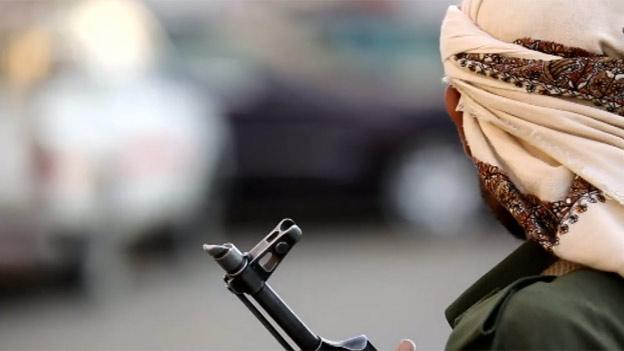Rebel infighting leaves Yemen's capital more divided than ever
- Published
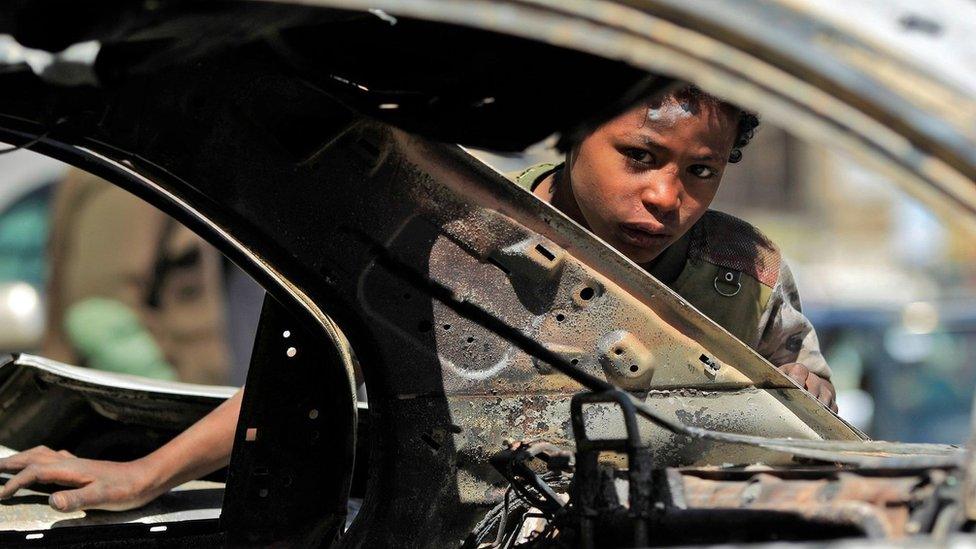
Civilians were trapped in their homes for days by the fierce street fighting in Sanaa
For the first time when driving into Sanaa I had no idea what to expect.
Three days before my arrival, the rebel Houthi movement had imposed a complete communications blackout in territory under its control - no internet, no social media, no way for residents to reach the outside world.
The journey from the Yemeni government-controlled southern city of Aden to the capital, something one usually set aside six hours for, had taken us almost twice as long.
Our vehicle had to negotiate a way between the craters that punctuated the road - stark evidence of three years of war in the country.
Crossing into the rebel-held north, it was sobering to note that the Houthis were now the only force in charge there.
Only days before, the region had been controlled by an alliance between the Houthis and forces loyal to former President Ali Abdullah Saleh, who ruled Yemen for 33 years before an uprising in 2011 forced him to hand over power.
But suddenly, brutally and irrevocably, the partnership had come to an end.
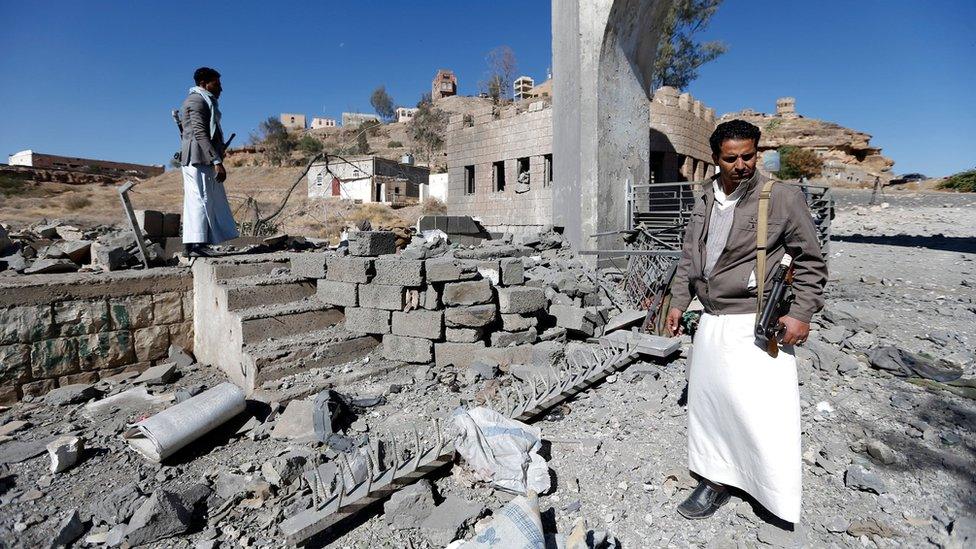
A reported Saudi-led coalition air strike targeted a Houthi-run TV station in the capital
Checkpoints that once featured portraits of both Saleh and the Houthis' leader, Abdul Malik al-Houthi, now only showed pictures of the latter. Only faint traces remained of the Saleh posters.
At one checkpoint after another, our vehicle was stopped and inspected.
More surprising, however, were the long queues on the other side of the road. It appeared that vehicles leaving Sanaa were being subjected to even more rigorous inspections.
I was told the Houthis were searching for Saleh aides attempting to flee the capital.
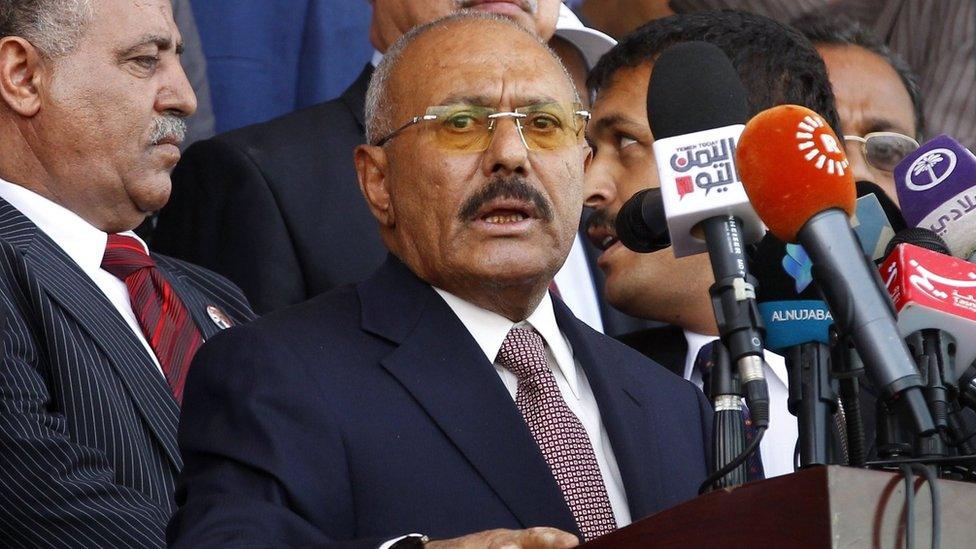
Ali Abdullah Saleh became an ally of the Houthis after Yemen's civil war began in 2015
Entering Sanaa, I was curious about what I would find. I had so many questions, and the people had so many stories to tell.
Driving around, life seemed normal. An eerie calm reigned over the city. The streets were bustling, the shops looked full.
Still, I could not believe how much of this beautiful city had been destroyed since my last visit, only three months ago.
Endless rows of shops, schools, and blocks of flats were riddled with bullet holes or completely burnt down - a result of five days of intense clashes between Houthi forces and Saleh supporters as well as air strikes by a Saudi-led coalition backing the government.
The fighting was "the worst the city has ever experienced," one local told me. "They were killing us from the air and from the ground - there was nowhere to hide".
According to the International Committee of the Red Cross, as many as 234 people were killed and 400 wounded.
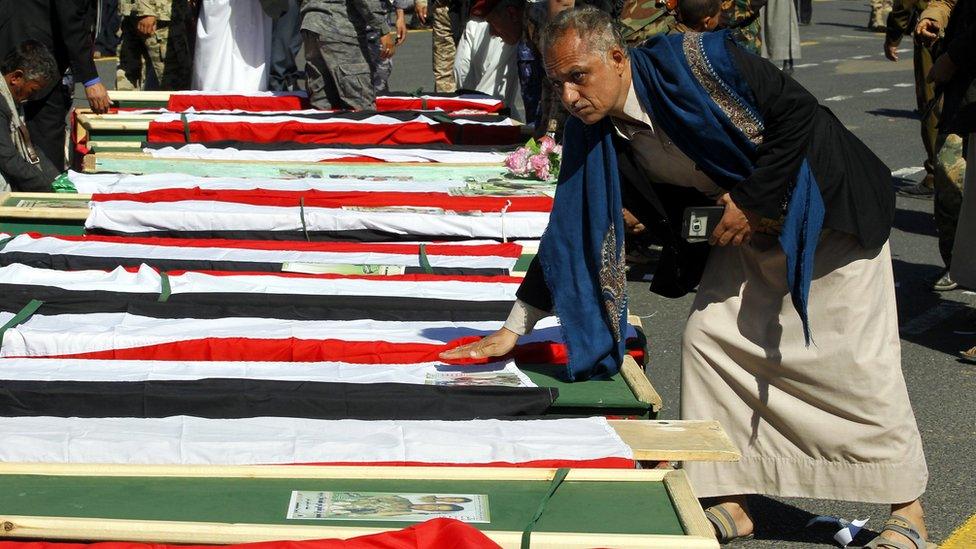
It is not clear how many combatants were killed in the clashes but estimates are it was more than 200
People living in the Hadda district, where the clashes started, told me horrifying stories of sniper fire shattering their windows and killing members of their family; of residents trapped in their homes for days, without food or clean water; of sick and wounded relatives unable to reach hospitals.
The rebel infighting erupted on 29 November, when Houthi forces stormed the Saleh Mosque - Yemen's biggest - killing four of guards loyal to the former president.
Two days later, Saleh announced in a televised speech his decision to end his fragile alliance with the Houthis.
To the surprise of many, he even declared his readiness to "open a new page" with the Saudi-led coalition, whom he had been fighting since March 2015.
"We will deal with them in a positive way," he said. "What has happened to Yemen is enough."
Ali Abdullah Saleh ruled Yemen for 33 years
The response to his speech in the capital was predictably mixed.
Houthi supporters told me Saleh was a traitor who should never have offered to begin dialogue with a coalition responsible for "aggression" and the "starvation of Yemenis".
But one Saleh supporter told me that the former president "felt for the people of Yemen" and understood that there was no way to end the war but to negotiate with the Saudis.
"He knows Yemen's politics best, and we can't take any more of this."
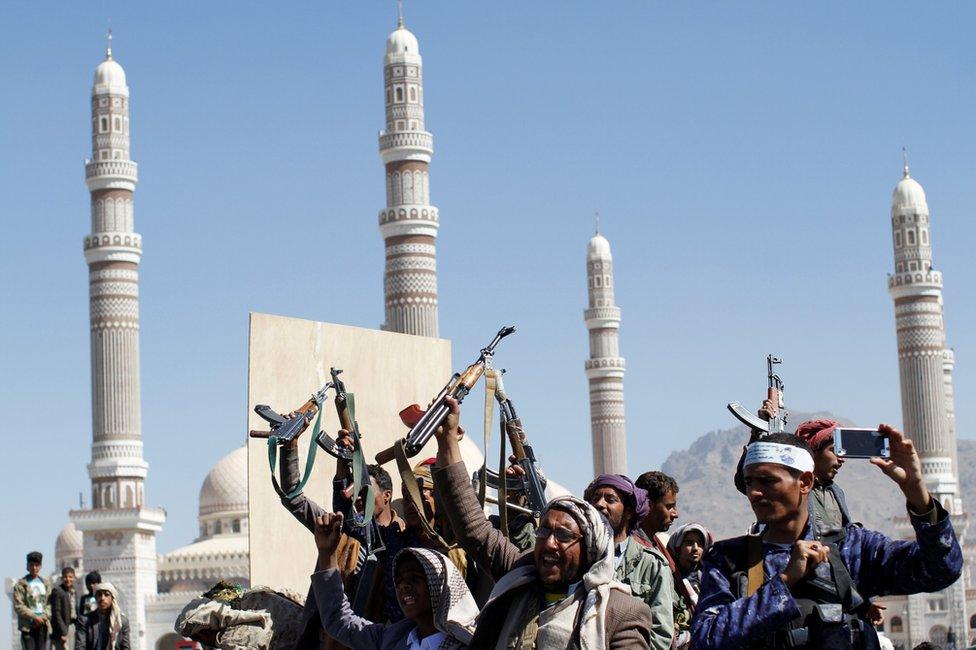
Houthi fighters celebrated the death of Saleh outside the mosque named after the ex-president
The coalition and the government of the current President Abdrabbuh Mansour Hadi, although hesitant at first, supported Saleh's call for an uprising against the Houthis.
It presented them with a get-out of-jail-free card, a face-saving way to extract themselves from a conflict in which they have been embroiled for years.
Many, both in Yemen and abroad, believed that pushing the Houthis out of Sanaa might mean the end of this vicious war, which has left the country battered, broken and starving.
Such hopes were dashed almost immediately, however, when Saleh was killed two days after his television appearance.
Within hours, a city that was once so united became more divided than ever.
Upon announcement of the news of Saleh's death, Houthi supporters poured into the streets in celebration, chanting "God is greatest" and "The traitor has been killed".
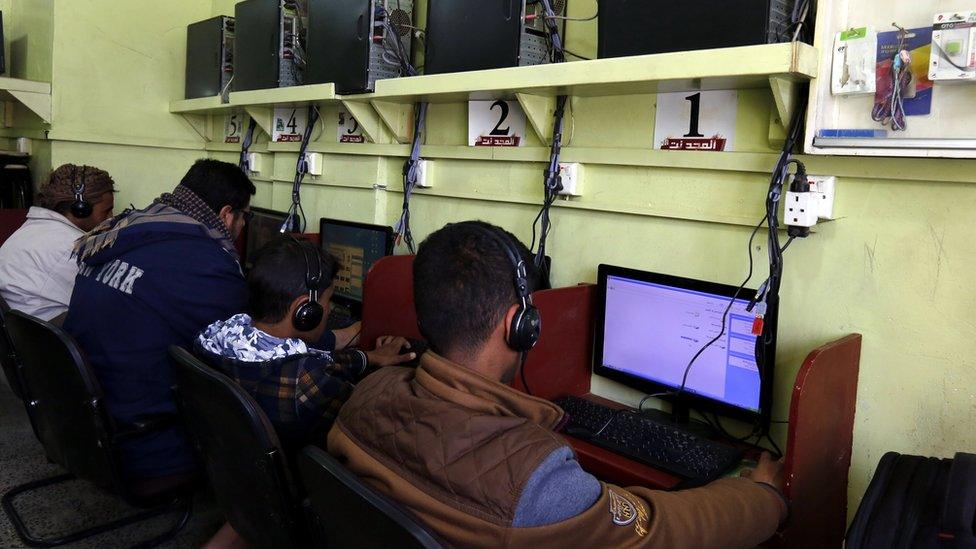
The Houthi authorities blocked access to the internet following the fighting
Saleh supporters were stunned, unable to mourn knowing what was to come next.
Within hours, photos of Saleh disappeared from the streets of Sanaa.
Even the Saleh Mosque was renamed the Nation's Mosque and the Houthis' trademark slogans plastered all over its marble walls. Those slogans are: "God is greatest. Death to America. Death to Israel. A curse on the Jews. Victory to Islam."
Soon enough, a mass crackdown on the leaders and members of Saleh's party, the General People's Congress (GPC), began.
Within two days, there were reports that the homes of more than 500 GPC supporters had been raided and their occupants taken away to unknown locations.
More than 40 journalists have been arrested, including employees working for Saleh's TV channel and a Russia Today reporter who happened to be covering the clashes.
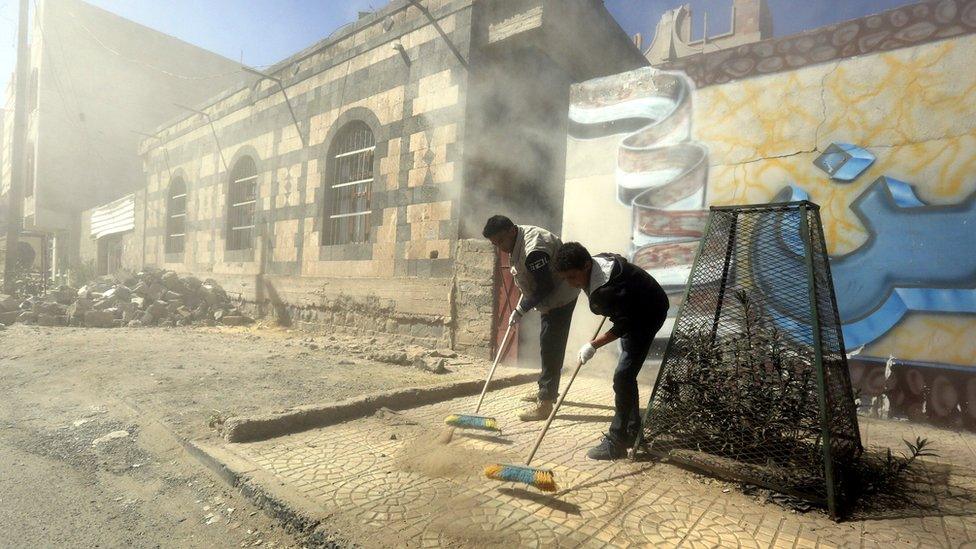
Residents of Sanaa were also encouraged to take part in a clean-up campaign
The next morning, I went to the Houthi-controlled ministry of information - a place I have come to know extremely well - to obtain the required press accreditation and permits.
Inside the ministry building, there was not a single reminder of Saleh.
As I sat down with the official in charge of permits, I raised the issue of the media blackout currently imposed by the Houthis on the country.
"What happened is that a new page in Yemen's history has begun", he told me. "Saleh is gone and now we are in charge."
He is right, for now. The question on everyone's mind is: "For how long?"
- Published4 December 2017
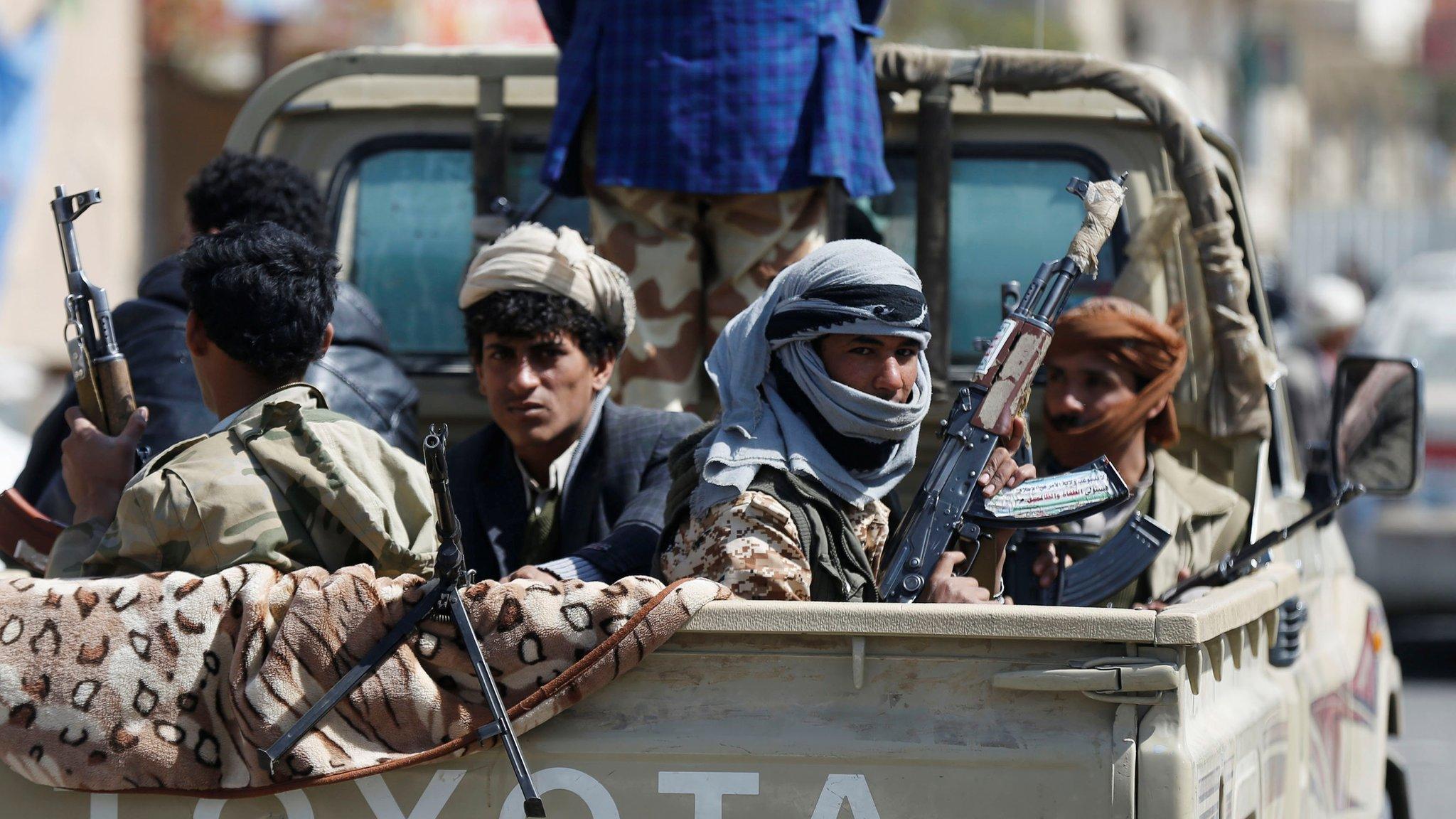
- Published3 December 2017
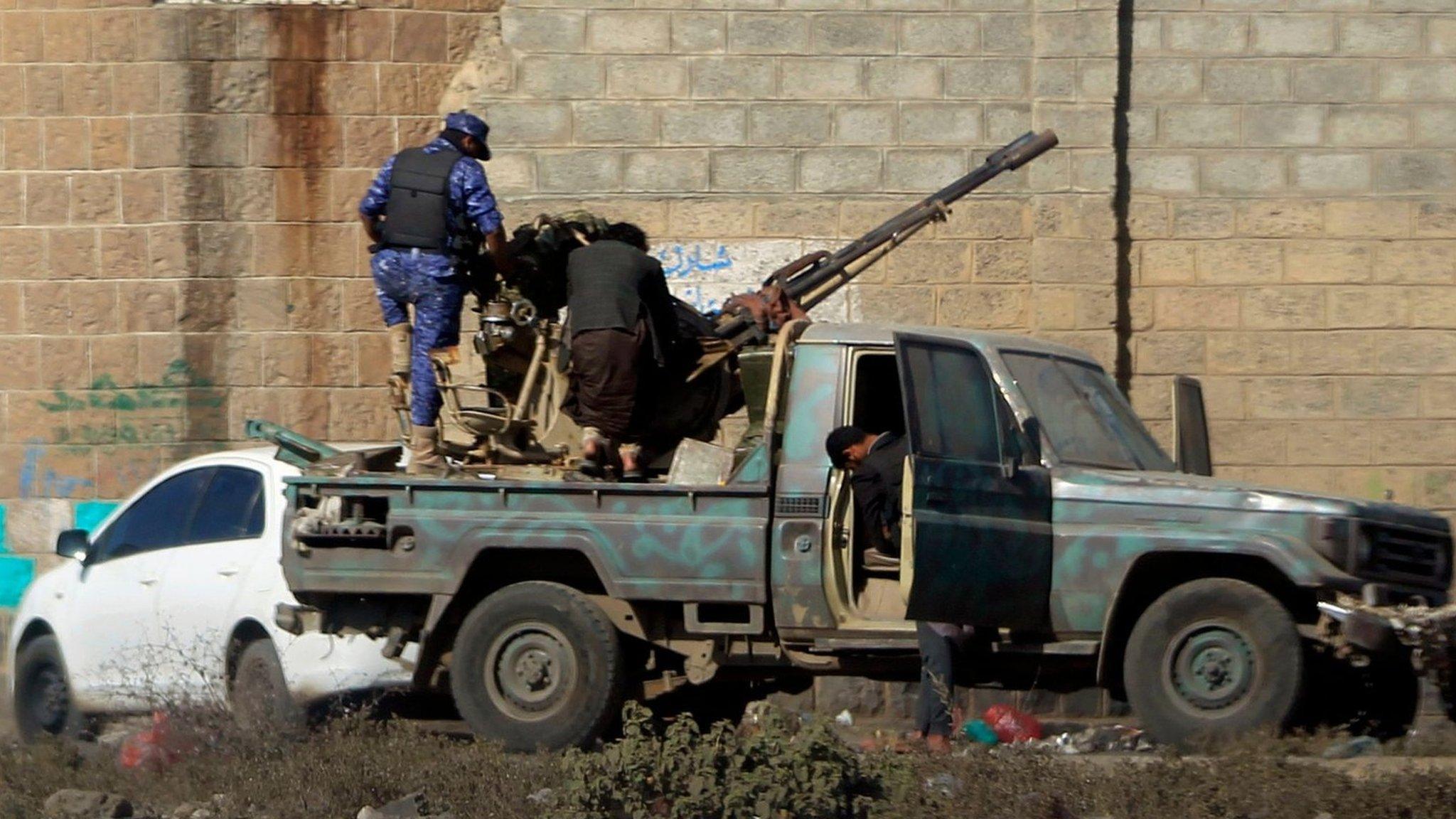
- Published14 April 2023
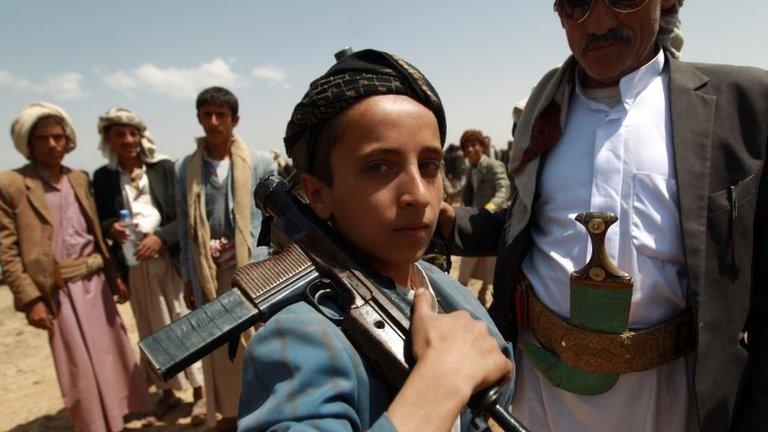
- Published26 March 2017
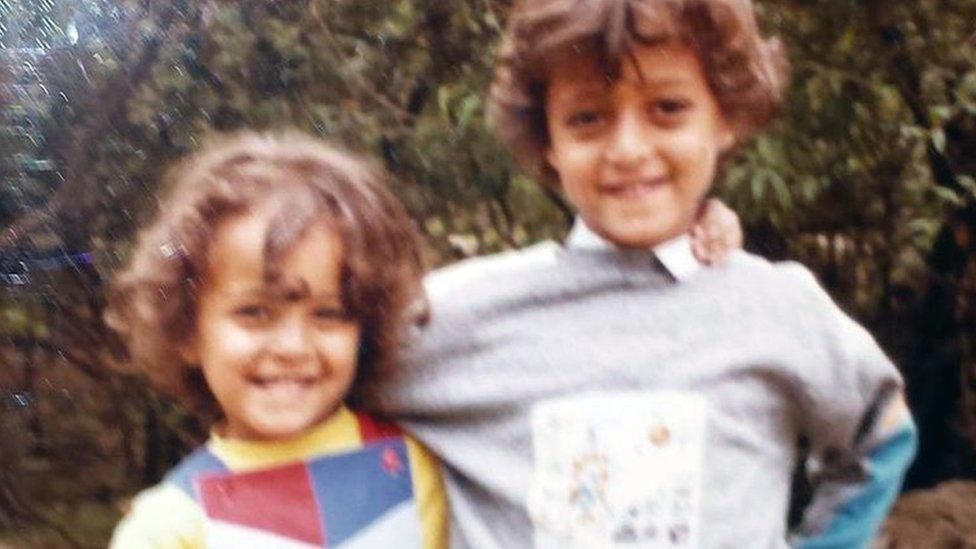
- Published26 March 2016
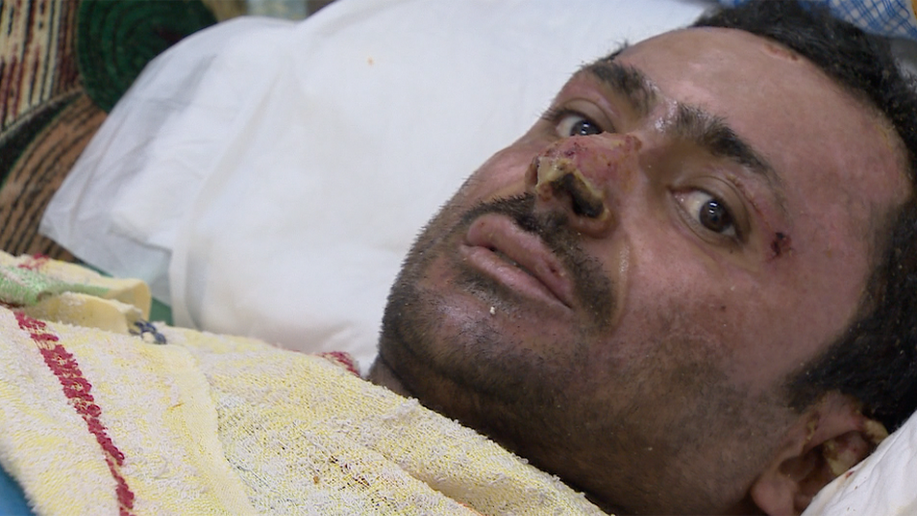
- Published14 November 2017
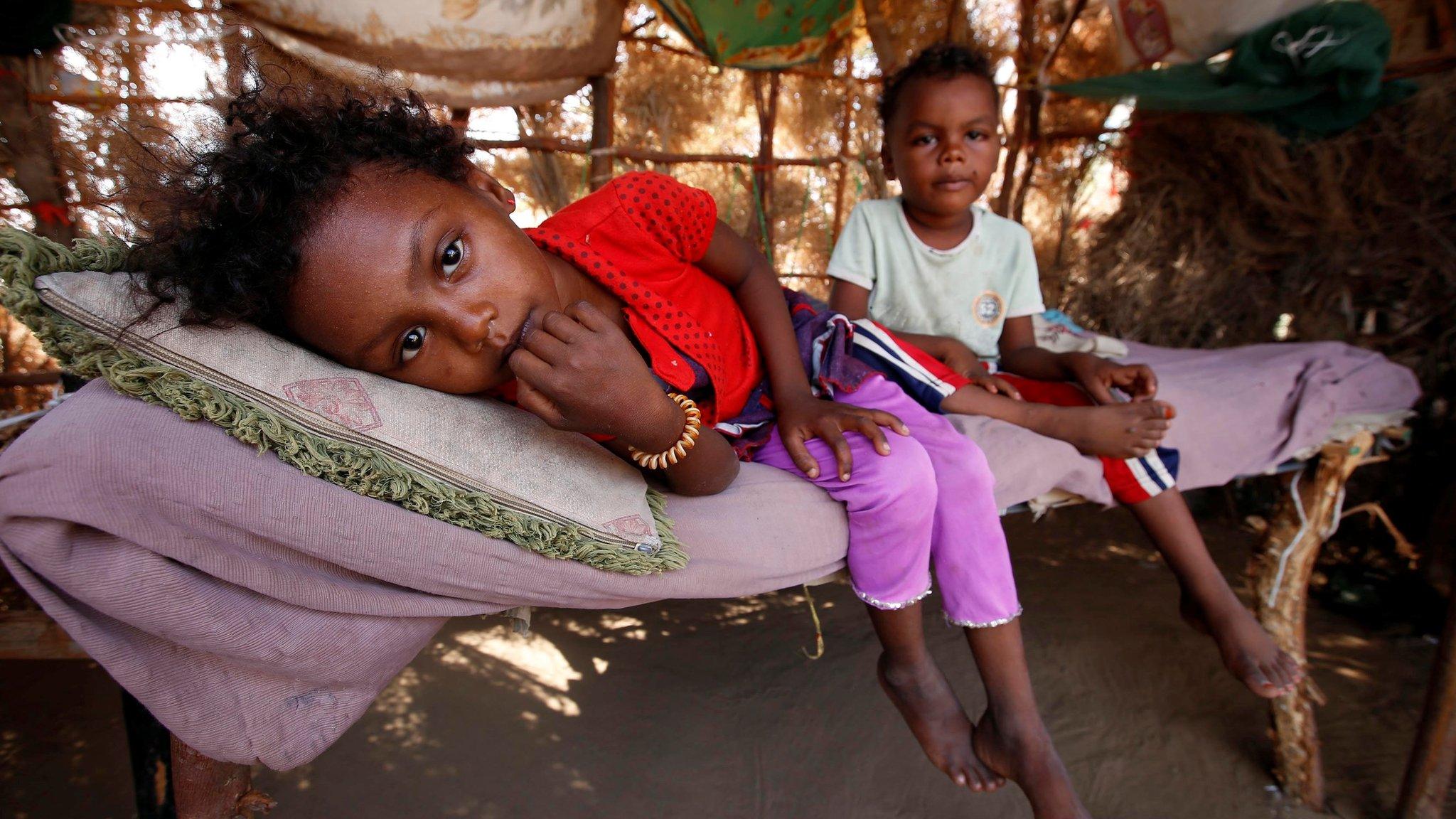
- Published9 December 2016
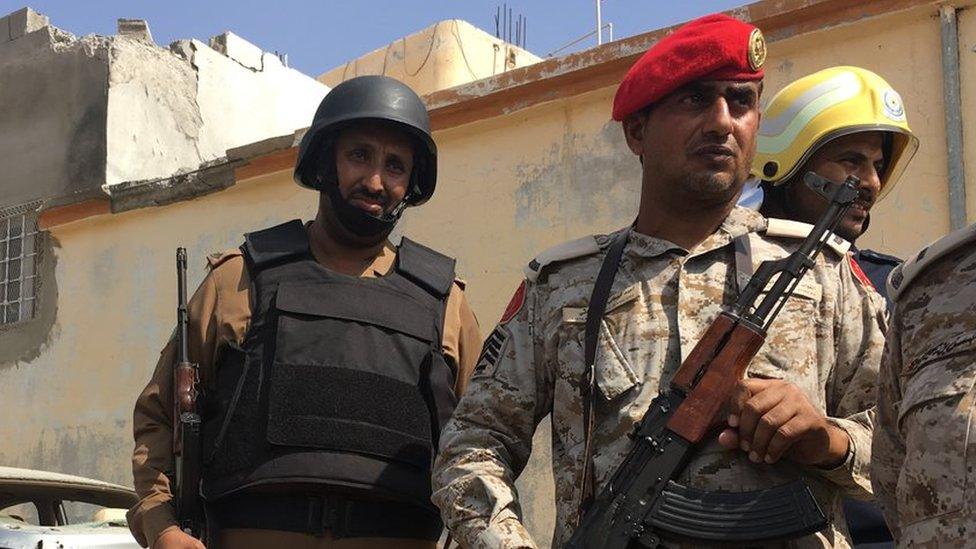
- Published17 March 2015
